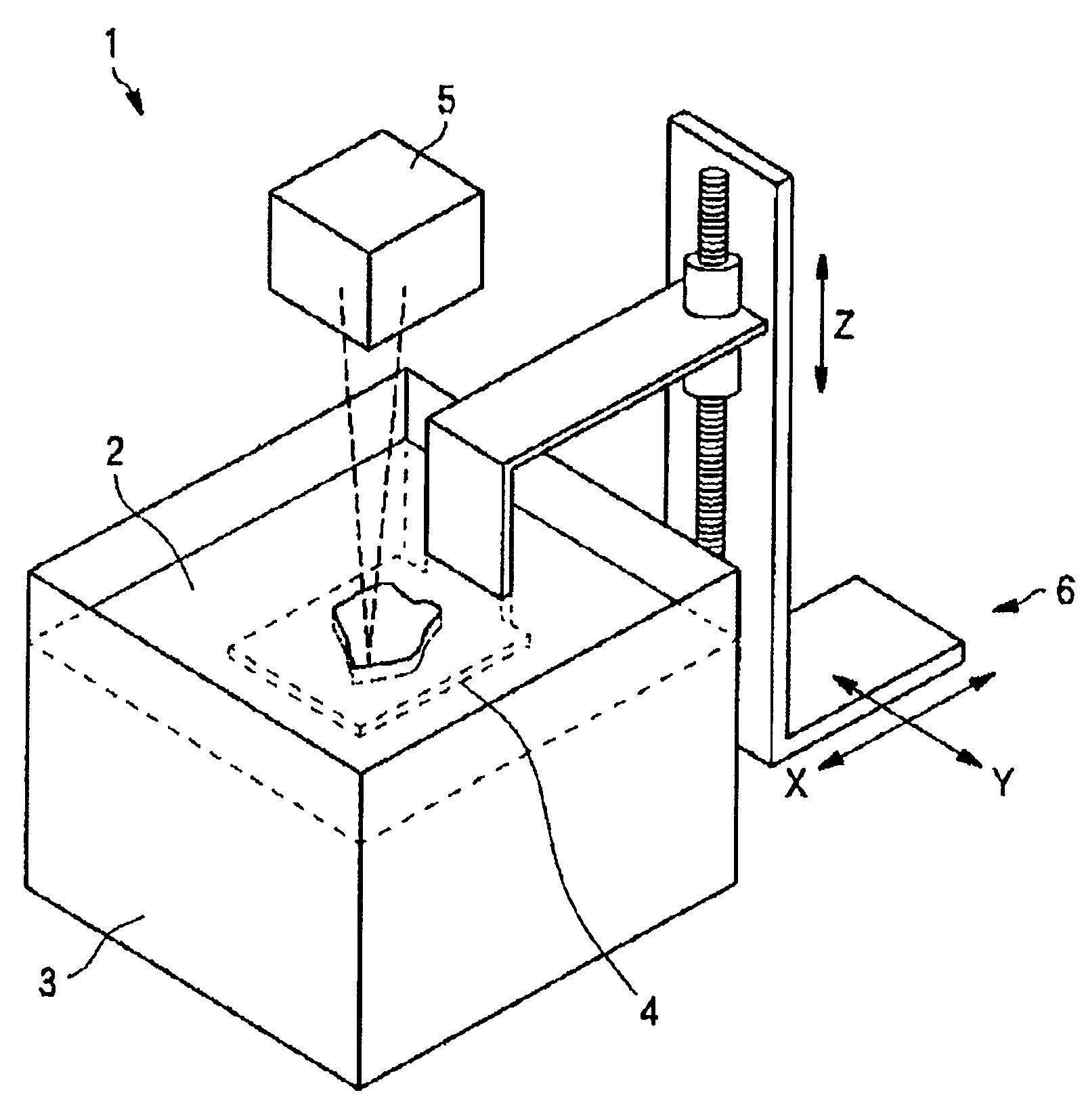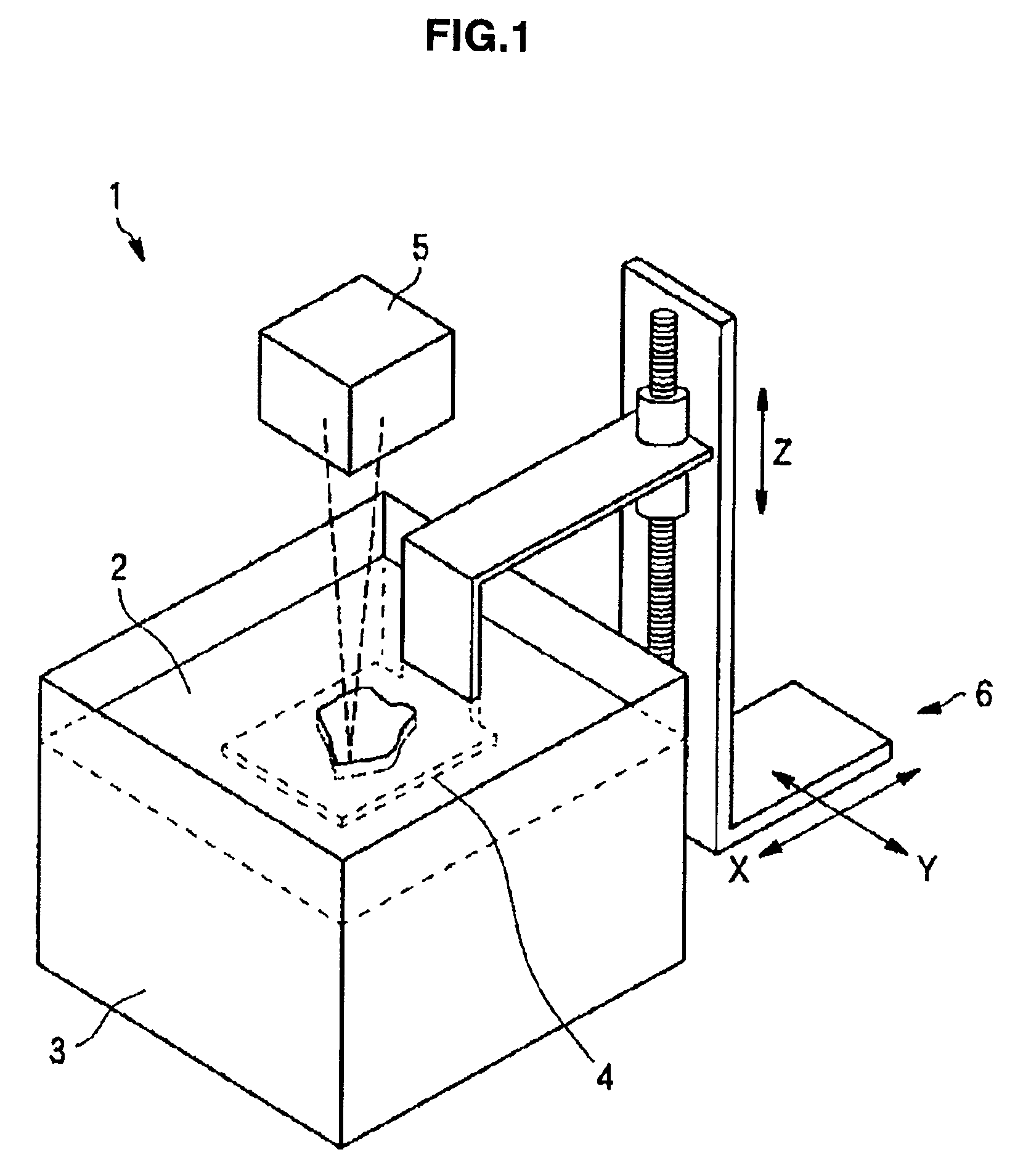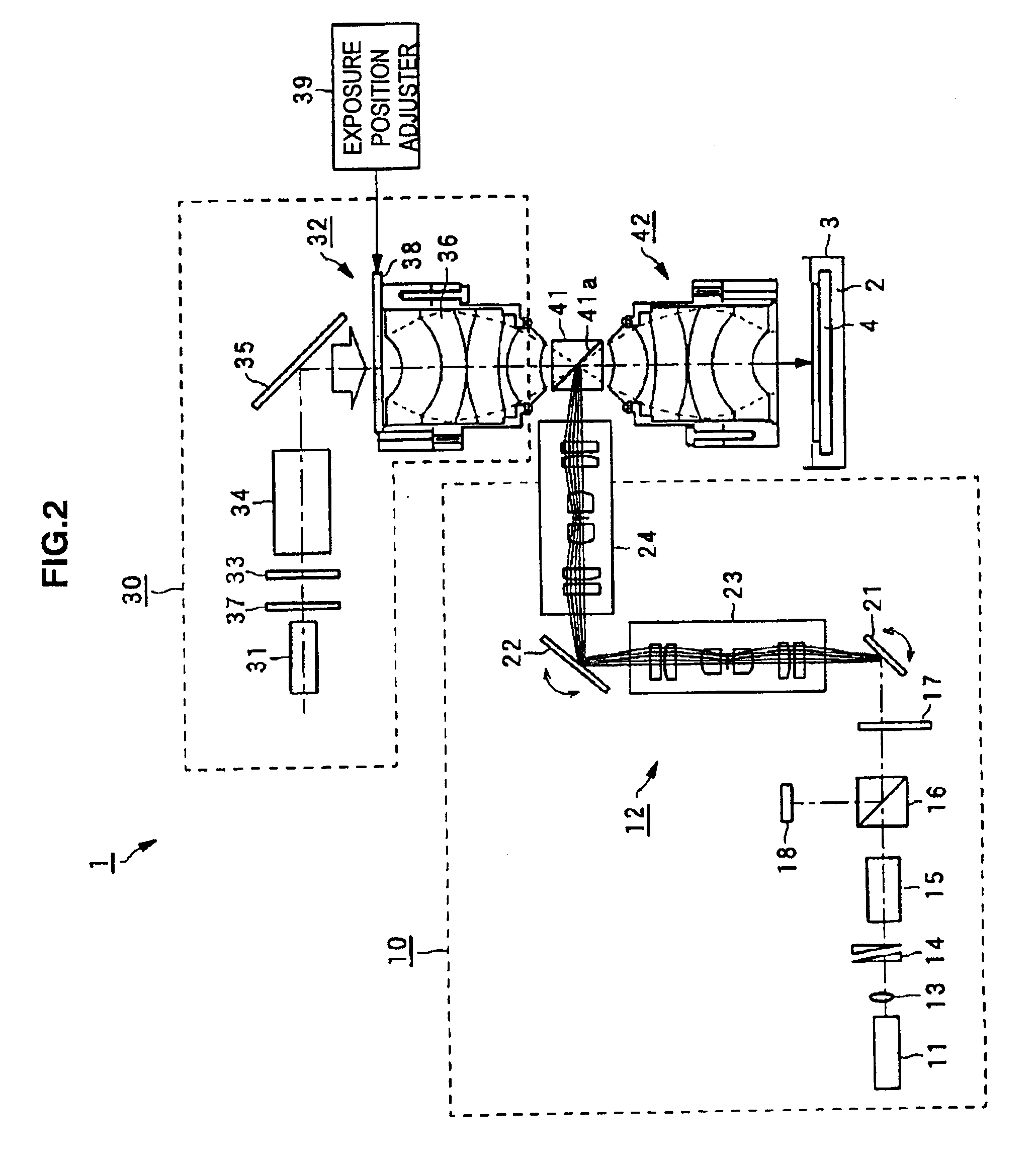Optical modeling apparatus
a technology of optical modeling and modeling apparatus, which is applied in the field of optical modeling apparatus, can solve the problems of enormous modeling time, no better than 50 microns of accuracy of known three-dimensional modeling methods and three-dimensional modeling apparatuses, and the original use of no better than 50 microns, so as to reduce the strength and shorten the time
- Summary
- Abstract
- Description
- Claims
- Application Information
AI Technical Summary
Benefits of technology
Problems solved by technology
Method used
Image
Examples
Embodiment Construction
[0044]Hereinafter, a preferred embodiment of the present invention will be described in detail with reference to the appended drawings. Note that, in this specification and the appended drawings, structural elements that have substantially the same function and structure are denoted with the same reference numerals, and repeated explanation of these structural elements is omitted.
[0045]An optical modeling apparatus 1 according to an embodiment of the present invention, as shown in FIG. 1, is an optical modeling apparatus that forms a series of hardened layers by exposing a light curable resin to light, accumulating the layers to form a model of a desired shape. Note that the embodiment explained below uses a liquid ultraviolet curable resin as the light curable resin, but the present invention is not limited to using a liquid resin. For example, a resin film may also be used. Moreover, the present invention is not limited to using an ultraviolet curable resin. That is, any material ...
PUM
| Property | Measurement | Unit |
|---|---|---|
| thickness | aaaaa | aaaaa |
| focal length | aaaaa | aaaaa |
| focal length | aaaaa | aaaaa |
Abstract
Description
Claims
Application Information
 Login to View More
Login to View More - R&D
- Intellectual Property
- Life Sciences
- Materials
- Tech Scout
- Unparalleled Data Quality
- Higher Quality Content
- 60% Fewer Hallucinations
Browse by: Latest US Patents, China's latest patents, Technical Efficacy Thesaurus, Application Domain, Technology Topic, Popular Technical Reports.
© 2025 PatSnap. All rights reserved.Legal|Privacy policy|Modern Slavery Act Transparency Statement|Sitemap|About US| Contact US: help@patsnap.com



